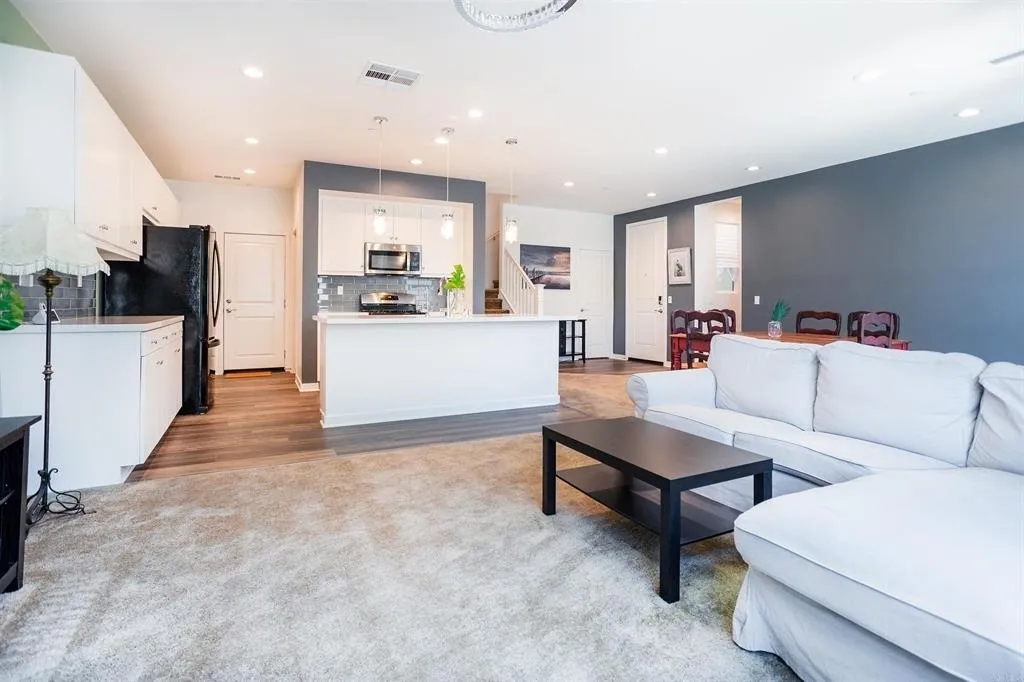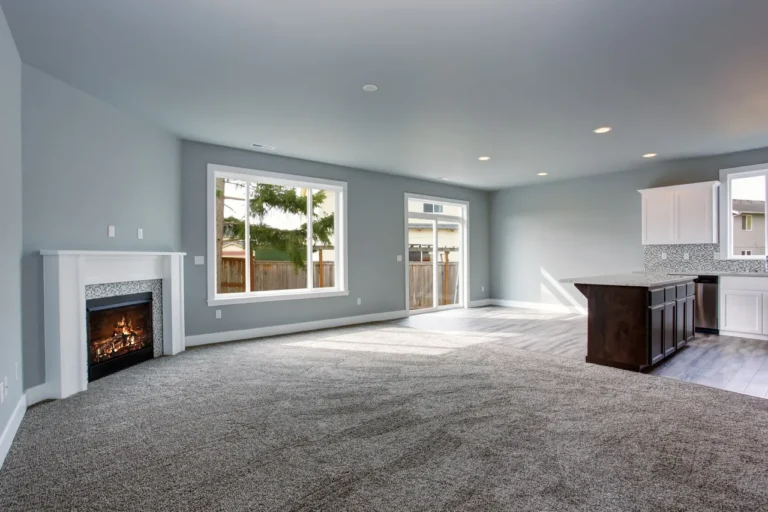Introduction
Rent increases are an inevitable part of the rental process, but they can often be a source of confusion and tension between landlords and tenants. For tenants, receiving notice of a rent increase can be stressful, especially if the increase feels sudden or unfair. For landlords, failing to follow proper legal procedures when notifying tenants of a rent increase can lead to legal challenges and disputes that are costly and time-consuming.
In California, understanding the legal requirements surrounding rent increase notices is crucial for both tenants and landlords. The state has established clear guidelines that protect tenants while also ensuring landlords can adjust rental prices in accordance with market trends and property maintenance costs. These rules are designed to strike a balance between fairness and practicality, ensuring that rent increases do not lead to undue hardship for tenants while allowing landlords to manage their properties effectively.
This blog post will explore the legal requirements for rent increases in California, focusing on the required notice periods, rent control laws, exceptions to the rules, and practical steps tenants and landlords should take to ensure compliance. We’ll also address common questions and scenarios that can arise, helping both parties navigate the rent increase process with clarity and confidence.
Legal Requirements for Rent Increase Notices in California
California state law is specific about how and when landlords must notify tenants of a rent increase. The requirements are in place to ensure that tenants are not blindsided by sudden rent hikes, providing them with time to adjust their budgets or seek alternative living arrangements.
➢ Written Notice Requirement: One of the most important rules in California is that all rent increases must be provided in writing. Landlords cannot rely on verbal agreements or informal notices to communicate a rent increase. The written notice should include the following essential information:
- The tenant’s name and address of the rental unit
- The current rent amount
- The new rent amount
- The amount of the rent increase
- The date when the new rent will take effect
- A statement indicating that the increase complies with California law
This written notice must be delivered to the tenant, either by hand, through the mail, or posted in a visible area of the rental property (such as on the door). It’s important for landlords to retain proof of the notice being delivered to avoid disputes.
➢ Minimum Notice Period Based on Percentage Increase: California law requires that the length of time a landlord must provide notice before a rent increase takes effect depends on the percentage of the increase. This ensures that tenants have sufficient time to adjust to the change:
- 30 Days’ Notice for Rent Increases under 10%: If the rent increase is 10% or less of the current rent within a 12-month period, the landlord must provide at least 30 days’ written notice. This allows tenants a full month to prepare for the increase, whether by budgeting, negotiating, or finding another rental property.
For example, if the rent is $1,000 per month and the landlord raises the rent by $50 (a 5% increase), the tenant must be given a written notice at least 30 days before the new rent will be due. If a tenant receives notice of the rent increase on the 1st of a month, the increase cannot take effect before the 1st of the following month.
- 90 Days’ Notice for Rent Increases of 10% or More: For increases that are 10% or more of the current rent within a 12-month period, landlords must provide 90 days’ written notice. This longer notice period is intended to protect tenants from sudden, significant increases that may be difficult to accommodate in the short term.
For example, if the rent is $1,000 per month and the landlord raises it by $200 (a 20% increase), the tenant must be given a written notice at least 90 days before the new rent is due. This is particularly important for tenants who might need more time to adjust their budget or search for alternative housing options.
These rules apply to most rental properties in California, but it’s important to understand that some properties may be subject to additional rules or restrictions, particularly those located in areas with rent control.
How Much Notice is Required for Rent Control Properties?
While the general rules mentioned above apply to most rental properties, the situation can be different for rent-controlled properties. Rent control laws are designed to protect tenants in areas with high demand for rental housing by limiting the amount and frequency of rent increases.
➢ What is Rent Control? Rent control laws are a set of regulations that limit how much and how often landlords can increase the rent on a rental property. These laws were introduced to provide long-term affordability and stability for tenants, particularly in cities with housing shortages or high demand. Rent control typically applies to older buildings (often those constructed before 1979) and properties in certain cities.
➢ Notice Periods for Rent Control Properties: In California, many cities have adopted rent control laws to protect tenants from excessive rent increases. In these areas, the required notice periods for rent increases can be longer, and rent increases themselves are usually capped.
- Los Angeles: In Los Angeles, for example, rent-controlled properties are subject to specific rules that limit how much rent can be raised. Landlords must provide 90 days’ notice for any rent increase, regardless of the size of the increase. However, rent increases in rent-controlled areas of Los Angeles are also limited by the Consumer Price Index (CPI), which restricts annual increases to a certain percentage based on inflation.
- San Francisco: In San Francisco, rent-controlled units are also subject to restrictions on how much rent can be increased annually. The rent can only be raised once per year, and the increase cannot exceed a certain percentage based on the CPI. Landlords are required to provide 60 days’ notice for rent increases under 10%, and 90 days’ notice for rent increases of 10% or more.
- Santa Monica and Other Rent-Controlled Areas: In Santa Monica, rent increases for rent-controlled properties are similarly restricted by local rent control ordinances. Rent-controlled units in Santa Monica require 60 days’ notice for rent increases under 10%, and 90 days’ notice for increases of 10% or more. The city’s rent control laws also place caps on how much rent can be increased, ensuring that tenants are not subject to excessive rent hikes.
It’s essential for both tenants and landlords to understand whether the rental property is subject to rent control, as this can have a significant impact on how much notice is required for a rent increase.
When a Landlord Cannot Raise Rent
In some cases, landlords are prohibited from raising the rent, either due to the terms of the lease or because of certain legal protections afforded to tenants.
- During a Fixed-Term Lease: If a tenant has signed a fixed-term lease, the landlord cannot increase the rent during the term of the lease unless the lease specifically allows for it. For example, if a tenant has signed a one-year lease, the landlord cannot raise the rent until the lease expires, unless the lease agreement allows for a rent increase at a specific time or under certain conditions. Once the lease term ends, the landlord may offer a new lease with a rent increase, but they must still follow the proper notice period.
- Retaliatory Rent Increases: California law also protects tenants from retaliatory rent increases. If a tenant files a complaint with local authorities regarding habitability issues, reports the landlord for code violations, or exercises other legal rights, the landlord is prohibited from increasing the rent in retaliation. Retaliatory rent increases are illegal and can be challenged in court.
Exceeding Legal Rent Increase Limits: In cities with rent control, landlords are prohibited from raising the rent beyond the limits established by the local rent control ordinance. If a landlord exceeds these limits, the rent increase is deemed invalid, and the tenant can take legal action to challenge the increase.
Exceptions and Special Circumstances for Rent Increases
There are several exceptions and special circumstances that may affect the ability of a landlord to increase rent.
- Emergency Rent Freezes: In some situations, local governments may impose temporary rent freezes in response to a natural disaster, economic crisis, or public health emergency. For example, during the COVID-19 pandemic, many cities in California imposed temporary restrictions on rent increases to help tenants who were financially affected by the crisis. These rent freezes were intended to provide relief during times of hardship and may have extended to both rent-controlled and market-rate properties.
- Emergency Legislation: State or local governments can also pass emergency legislation to restrict rent increases. For example, following natural disasters or other crises, governments may temporarily freeze rents to prevent financial burden on tenants. It’s important for tenants and landlords to stay informed about any temporary rent freeze legislation in their area.
- Tenant’s Right to Request Documentation: Tenants have the right to request documentation from their landlord regarding the rent increase, including evidence that the increase is reasonable and complies with local laws. If the tenant believes the rent increase is too high or unfair, they can request this documentation before agreeing to the increase.
What to Do if You Receive a Rent Increase Notice
Receiving a rent increase notice can be unsettling, but tenants have certain rights and steps they can take to ensure the increase is fair and legal:
1. Check the Notice Period: Review the rent increase notice to ensure it complies with California’s notice requirements. Verify that the notice was given with the correct amount of lead time—30 days for increases under 10% and 90 days for increases of 10% or more.
2. Verify the Rent Control Status: If you live in a rent-controlled area, check whether the rent increase is in compliance with local rent control laws. If the increase exceeds the legal limit, you can challenge the increase.
3. Talk to Your Landlord: If you believe the increase is unreasonable or would cause undue hardship, try discussing the issue with your landlord. In some cases, landlords may be willing to negotiate a smaller increase or offer other solutions.
4. Consider Your Options: If the increase is legal and the landlord is not willing to negotiate, consider whether you can afford the new rent. If the increase is too high, you may want to explore alternative housing options or seek financial assistance programs available in your area.
5. Seek Legal Advice: If you believe the rent increase is illegal or if your landlord is violating the terms of your lease or local rent control laws, consult with a tenant’s rights attorney or seek assistance from a local tenant advocacy organization.
How Landlords Can Properly Notify Tenants of Rent Increases
Landlords must follow the law when notifying tenants of a rent increase. Properly managing rent increases can help prevent legal issues and maintain a positive relationship with tenants:
- Provide Written Notice: Always provide the required written notice with clear details about the increase and when it will take effect. The notice should be free from errors and easily understandable.
- Respect Local Ordinances: If your property is located in a rent-controlled area, make sure to comply with local rent control laws. Local ordinances may have stricter rules regarding notice periods and allowable rent increases.
- Deliver Notices Timely: Make sure the notice is delivered within the required timeframe, either by hand, mail, or posting at the property. Keep a record of delivery.
Maintain Open Communication: Clear, transparent communication about the reasons for the increase (such as rising property maintenance costs or improvements to the unit) can help tenants understand the need for the increase and avoid misunderstandings.
Frequently Asked Questions
➢ Can a landlord increase rent during the lease term?
No, rent increases are not allowed during a fixed-term lease unless the lease allows for it. Once the lease ends, a landlord may offer a new lease with a rent increase.
➢ Are there limits on how much my rent can be raised?
Yes, if you live in a rent-controlled area, the amount your rent can be raised is limited by local rent control laws. Even if you’re not in a rent-controlled area, the landlord must provide proper notice based on the percentage of the increase.
➢ What happens if my landlord gives me less notice than required?
If your landlord gives less notice than the legal minimum, the rent increase is considered invalid, and you are not required to pay the new rent until the proper notice period has passed.
Conclusion
Understanding the rules surrounding rent increases is crucial for both tenants and landlords. By following the legal requirements for notice periods and respecting local rent control ordinances, landlords can avoid potential disputes and maintain a positive relationship with tenants. Similarly, tenants can protect their rights by knowing what notice they are entitled to receive and understanding the legal limits on rent increases.
By being well-informed and taking the proper steps, both tenants and landlords can navigate rent increases in California with confidence and ensure that they are operating within the bounds of the law.
Turn Your Passion for Property Management Into Profit
Join our franchising program and learn how to become a successful property manager. We provide all the training and support you need to build your business. Learn More About Franchising Opportunities and take the first step today!
Let us handle the day-to-day operations while you enjoy hassle-free ownership. From tenant relations to maintenance, we’ve got it covered. Contact Us! Today to learn more about our property management services!





